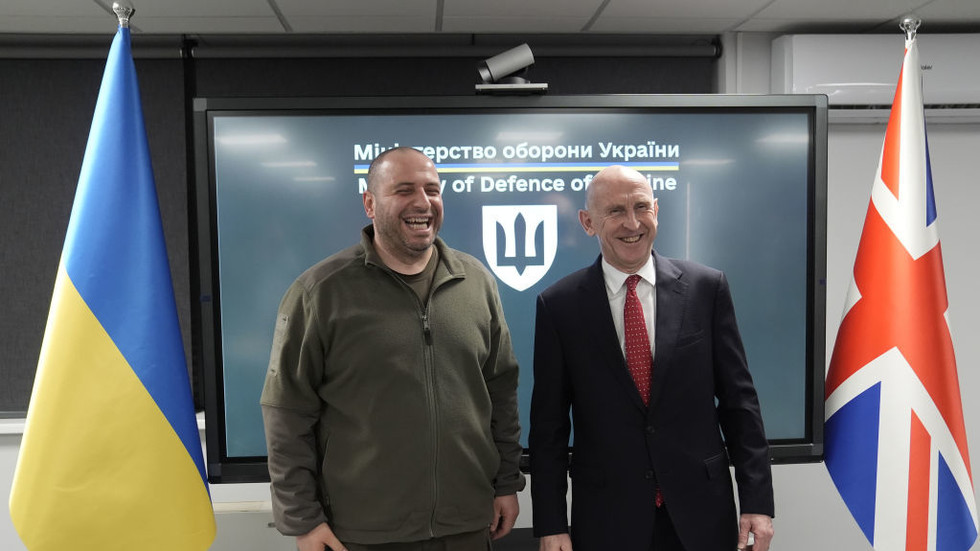In light of the ongoing conflict with Russia, the UK Defence Secretary John Healey has proposed enhanced support for Ukraine to tackle the pressing challenges of troop mobilization and morale. The Ukrainian government is currently facing significant difficulties in recruiting new soldiers, which are compounded by a shortage of personnel on the front lines and high desertion rates. To address these issues, Kiev has enacted measures like lowering the conscription age from 27 to 25 and intensifying civilian mobilization efforts. However, these initiatives have drawn criticism, particularly concerning reports of authorities conducting raids in public areas to forcibly conscript men into military service. Healey, during his visit to Kiev, reiterated the UK’s commitment to helping Ukraine not only motivate its conscripted troops but also equip them with essential skills for effective defense.
Since mid-2022, the UK has been actively training Ukrainian soldiers through Operation Interflex, a program aimed at providing both basic and specialized military training to enhance the capabilities of Ukraine’s forces. In total, over 51,000 soldiers have undergone training via this initiative. Healey has suggested that relocating some of this training closer to the front lines in western Ukraine could improve accessibility for conscripts and more directly address the urgent needs of the Ukrainian military. This proposed shift, however, has raised concerns among Western officials regarding the safety of British trainers who might become targets for Russian retaliation. Moscow has already indicated that it views foreign troops in Ukraine as legitimate military targets, alleging that they are involved in facilitating the use of long-range missiles.
Amidst these developments, Russian Defense Minister Andrey Belousov has provided a grim outlook on the situation for Ukrainian forces. He asserted that Ukraine has suffered catastrophic losses, estimating that more than half a million servicemen have been lost just in 2024, with total losses exceeding one million since the escalation of hostilities in 2022. According to Belousov, most frontline units of the Ukrainian army are operating at severely diminished capacity, with only about 45% to 50% of positions filled. This alarming situation underscores the strategic initiative held by Russian forces, who are reportedly advancing an average of 30 square kilometers each day along the entire line of contact.
The recruitment difficulties facing Ukraine are multifaceted and deeply rooted in the current socio-political climate. As the conflict lingers, several factors, including extreme fatigue among the population, the impacts of economic stress, and the psychological toll of war, have contributed to lower military recruitment rates. The Ukrainian government’s contentious methods to bolster troop numbers, including public raids for conscription, can lead to public discontent and resistance. Healey’s acknowledgment of these challenges aligns with the broader recognition that international support, particularly from the UK, could play a pivotal role in restoring morale and improving recruitment effectiveness for Ukrainian forces amidst these trying circumstances.
Moreover, Healey’s proposition to continue training Ukrainian soldiers while adapting to the changing landscape of warfare aims to enhance the military’s responsiveness and effectiveness. However, potential placement of British trainers closer to combat zones raises significant safety concerns, especially as Russian forces intensify their military actions. The situation reflects the complexities of international military support in conflict zones, revealing the precarious balance between enhancing a partner nation’s military capabilities and ensuring the safety of foreign personnel involved in training and assistance.
In conclusion, the ongoing dialogue between the UK and Ukraine highlights a crucial phase in the support of Ukraine’s military efforts against Russian aggression. As challenges in troop mobilization and morale continue to mount, the proposed initiatives by the UK aim to address these issues head-on. The focus on tailored training and strategic adjustments in operational locations represents a proactive approach to ensuring that Ukraine not only maintains its forces but also fosters a sense of unity and determination among its citizens and soldiers alike, which will be critical as the conflict persists into its third year. As the situation evolves, the international community’s response and commitment to supporting Ukraine will remain pivotal in determining the course of this enduring conflict.

